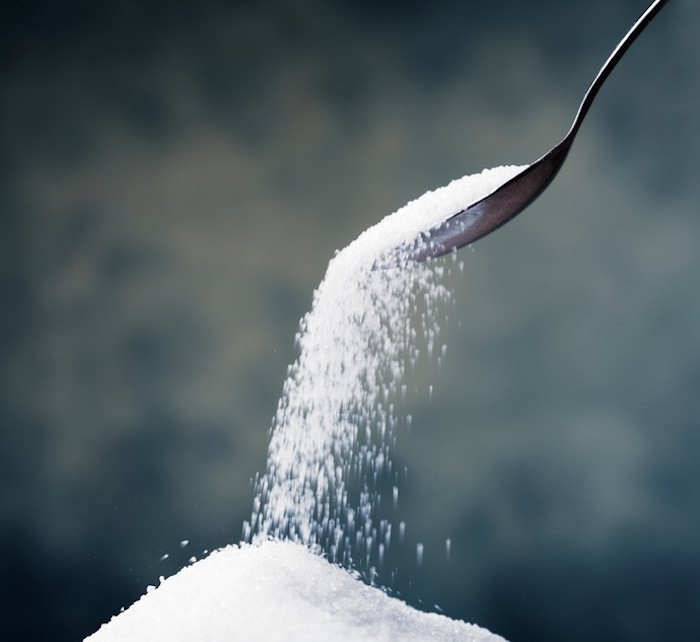
I have a recurring nightmare… I’m happily walking through a grocery store, strolling past the organic zucchini and along the aisles of Bob’s Red Mill chickpea flour. Everything is going well until I look down and discover something that drenches me with fear and embarrassment: I see that my cart has been filled with bags of WHITE SUGAR and bottles of HIGH FRUCTOSE CORN SYRUP. Oh! The horror! All the other shoppers notice what I’m buying and they begin pointing at me with looks of disdain. I drop everything and start to run away before the nightmare ends and I wake up in a cold sweat.
Okay, it’s clear that I need professional help. But joking aside, how comfortable would you feel walking into a store and buying a bottle of high fructose corn syrup along with your organic kale and brown rice pasta? HFCS is an acronym for a very naughty phrase, but you will often see products proudly proclaim that they are “sweetened with agave nectar” as if this is doing you a favor. At some point you have to wonder: are these stereotypes accurate? What, exactly, is the difference between agave nectar and corn syrup, for example?
I will be the first to admit it – the marketing power of certain “natural” sweeteners fooled me for a long time. I lived with the silent and untested assumptions that certain sweeteners were “healthy” while others were poisonous and evil. The recipes on my blog have even reflected this at times. I hate to say it, but I was wrong.
When I took the time to dig through the facts with a little common sense, the results were surprising. Let’s set the record straight about sweeteners: in terms of sugar content, all sugar-based sweeteners are very similar. No one variety is more or less healthy than any other. Agave, Sucanat, corn syrup? Nothing but different names for the same thing: sugar.
Justice and Equality for All (Sugar Molecules)
To see how absurd us health nuts are, do an experiment sometime. Take the most health-conscious person you know and make them some pancakes (vegan, gluten-free, whole grain, non-GMO, organic pancakes. Of course.) and make them choose from a selection of sweeteners: maple syrup, Aunt Jemima, and Karo corn syrup. I’m betting that your guest will quickly reach for the maple syrup and give you a dirty look for even offering the other options.
Why have they decided that maple syrup is a better choice? Is this the reality or have the marketing efforts of certain industries swayed their opinions? Let’s look at the facts to uncover the real story.
If we compare apples to apples, we find that all sugar-based sweeteners have virtually identical sugar and calorie counts. In granulated sugars, they all have 4 grams of sugar and 15 calories per teaspoon. It doesn’t matter if we are talking about white, brown, Sucanat, powdered, beet, cane, organic, whatever. 4 grams of sugar and 15 calories across the board.
With liquid sweeteners we see about the same thing: 13-16 grams of sugar and 60 calories per tablespoon. Agave, maple syrup, corn syrup? 13-16 grams of sugar in each. Hmm…
Whether it comes from a sugar cane, a maple tree, a corn kernel, a beet, or an agave plant, your body doesn’t play favorites. Sugar is sugar. The specific glucose, fructose, and sucrose molecules that we define as “sugar” are essentially the same. Nutritionists will argue that our bodies treat glucose, fructose, and sucrose in different ways, and this is true (see note below), but the chemical composition of sugar molecules is beyond the scope of this article. For our purposes, we can assume that our body treats those 4 grams of sugar equally, as it eventually does. Natural, processed, or somewhere in-between, the sugar is recognized as what it is: sugar.
Whether it comes from a sugar cane, a maple tree, a corn kernel, a beet, or an agave plant, your body doesn’t play favorites. Sugar is sugar.
The marketing ploys of different industries might make you feel better about yourself for choosing agave nectar over Aunt Jemima, but your body doesn’t really know the difference. In fact, agave nectar often has more fructose than high fructose corn syrup. (see here)
NOTE: There is good evidence that our bodies have a more negative response to fructose than other sugar molecules. If you want to get deeper in that research, see here and here.
Molasses & The Hitchhiking Nutrients
If we know that sugar molecules are just sugar molecules no matter how big the brand’s marketing budget, we can start to ask better questions. Like, what else am I getting with this sugar? The sugar content might be identical across the board, but do different varieties pass along other nutrients that might make them a better choice? To answer that, we need to look a little deeper.
There was a study done on this subject in 2009 (here) to compare the antioxidants in different types of sugars. It found a dramatically wide range of antioxidant activity in different sweeteners. Refined white sugar, corn syrup, brown rice syrup, and agave nectar had virtually no antioxidants (less than 0.01 on the scale), maple syrup, brown sugar, and honey had more (0.2 – 0.7), but blackstrap molasses had a whopping 4.6 – this puts 100g of molasses on par with a serving of blueberries.
Studies like this show that sugar molecules may be the same, but the added nutritional content found in certain sweeteners like molasses can make a big difference in how “healthy” a sweetener might be. The molasses sugar is still worthless, but at least it allows antioxidants to hitchhike their way into your body. Note, however, that molasses is the exception. Everything else had very little antioxidant activity, even those marketed as healthy and natural.
Vitamins are another important factor to consider. If you look at our hero above, molasses, again it has 15 grams of sugar per tablespoon (no surprise there) but it also has 12% of the recommended daily value of magnesium, 8% of potassium, with reasonable iron, calcium, and B vitamins. Agave nectar? 0, 0, and 0 on the vitamin scale. Organic sun-kissed evaporated coconut sugar? 0, 0 and 0.
The takeaway from this is that, if you are going to eat empty sugar calories, doesn’t it make sense to choose a sweetener that brings some type of vitamins, nutrients, or antioxidants along for the ride?
A Word About Sugar Substitutes
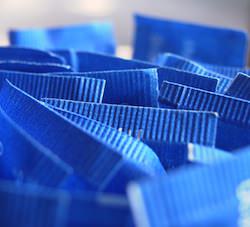 As you know, there are “sweeteners” that add a sweet taste to foods without adding any calories. These are not sugar-based, as they contain no glucose, sucrose, or fructose molecules. These products are not the main focus of this article, but they do deserve a mention.
As you know, there are “sweeteners” that add a sweet taste to foods without adding any calories. These are not sugar-based, as they contain no glucose, sucrose, or fructose molecules. These products are not the main focus of this article, but they do deserve a mention.
This category of poisons, er, sweeteners includes chemically-processed artificial sweeteners like Aspartame and Sucralose (Splenda), sugar alcohols like Erythritol and Xylitol, and natural substitutes like Stevia.
There is a ton of research that points to the negative health effects of these artificial sweeteners, but it doesn’t take a clinical trial to understand that ingesting lab-made chemicals isn’t good for your body. Despite the industry’s best efforts to discredit negative research, these products have been linked to cancers, and they may also mess up your metabolism and actually cause you to gain weight because your tongue tastes sweetness but your body is not getting any calories. Any way you spin it, these chemicals are no good and I almost always avoid them.
Once again, the myth of a healthy sweetener is busted.
The one exception I make in my own cooking is Stevia. It is not immune to these dangers, and there is some research questioning its health effects, but at least it is a natural plant extract as opposed to an artificial chemical.
The Magic of the Whole Food Sweetener
 This is the exciting part. Things get much more interesting when you use whole foods as sweeteners. Everything we have mentioned so far is a refined, industrialized sweetener. Those things don’t exist in nature, and since your body is an organism of nature, this imbalance is the source of our problem. I mean, when is the last time you saw sugar granules falling from the sky, or an agave nectar river flowing downstream? As cool as that would be, it simply doesn’t exist in nature. In order for those products to exist, we have to “create” them.
This is the exciting part. Things get much more interesting when you use whole foods as sweeteners. Everything we have mentioned so far is a refined, industrialized sweetener. Those things don’t exist in nature, and since your body is an organism of nature, this imbalance is the source of our problem. I mean, when is the last time you saw sugar granules falling from the sky, or an agave nectar river flowing downstream? As cool as that would be, it simply doesn’t exist in nature. In order for those products to exist, we have to “create” them.
When is the last time you saw sugar granules falling from the sky, or an agave nectar river flowing downstream? As cool as that would be, it simply doesn’t exist in nature.
Following inline with the spirit of the One Ingredient Diet, let’s not “create” our food, but rather eat foods that are just one whole ingredient in their most natural form. Why not extend that philosophy to the way we sweeten our foods?
This makes so much more sense. Nature produces plenty of sugar, but it does so in a very specific way. Sugar is almost always accompanied by fiber (which helps your body process the sugar safely) and often includes a wide range of vitamins and nutrients (think of fruit). Because your body was designed to eat unindustrialized foods, it knows how to absorb their nutrients naturally. So while that 1 cup of blueberries does have 15 grams of sugar, it also has 3.6 grams of fiber and tons of vitamins, antioxidants, and nutrients that your body needs to stay in harmony.
Dates are perhaps the best example of the magic of the whole food sweetener. Despite the fact that they are 80% sugar (which is insanely high in comparison with other foods), they do not seem to cause weight gain, blood sugar spikes, increased cholesterol, or any other negative health effects even when consumed in large quantities every day, as was seen in this study. Natural dates (or berries) give you plenty of sweetness, but it comes entirely from real foods in their whole form. Perfect.
Here are 5 ideas for whole-food sugar alternatives:
- Date sugar. This is not actually sugar at all, it is simply ground up dates. You can buy this in most healthier grocery stores (Bob’s Red Mill makes a great version) or you can make your own (I’ve included my recipe below).
- Berry Compote can be used almost anytime you would typically use syrup. Think pancakes, French toast, or crepes. Simply add any combination of berries to a skillet and allow them to reduce over low heat for 15 minutes until they form a thick sauce.
- Apple Sauce is wonderful to use in baking. It takes the place of oil to reduce the fat content, increases moistness, and adds mild sweetness.
- Fruit juices are technically not “whole” because they have lost their pulp and fiber. Nevertheless, they do contain much more vitamins and antioxidants than processed sweeteners and they can be a much better choice. Where possible, add fresh-squeezed orange, apple, or grape juice to your recipes. Try adding a little berry juice and mint to sparkling water for a delicious beverage. Compared with a bubbling black syrup (i.e. Coca-Cola), there is no comparison.
- Raisins have been proven to be as effective as sugary sports products in boosting athletic performance. But instead of processed sugars, colors, and chemicals, they have natural fiber, protein, and vitamins.
Better yet, leave out the sweetener altogether. Our modern idea of a ‘sweet tooth’ is nothing more than a palate which has been trained to look for overstimulation of certain areas on the tongue and the resulting pleasurable brain signals. Break that cycle. Try cutting out sweetener where possible and taste the food itself (imagine that). At first, the less-sweet cookies may taste bland, but your palate will quickly come to appreciate the more subtle flavors and you’ll wonder how you ever tolerated the sickening-sweet foods you used to eat.
RECIPE: How to Make Date Sugar
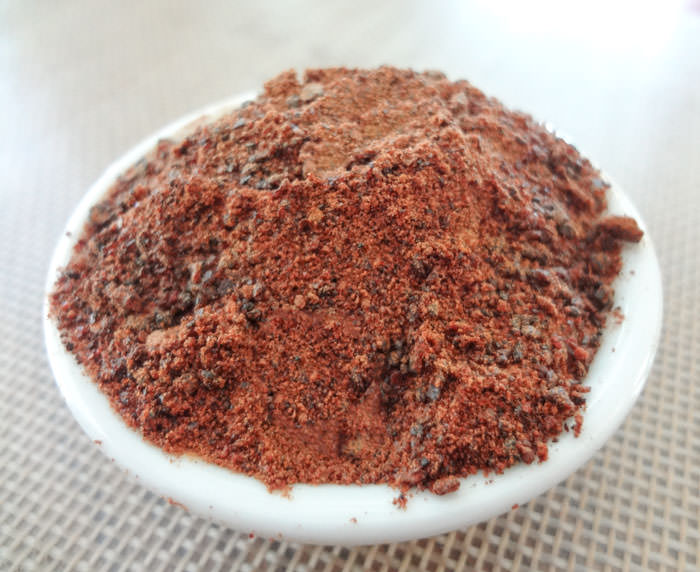
This wouldn’t be One Ingredient Chef without a recipe, would it? As mentioned above, date sugar is a fantastic replacement for granulated sugar. It doesn’t dissolve in liquids like sugar (so it is not an ideal sweetener for coffee, for example) but it works well in baking, smoothies, on cereal, or anytime you need solid sugar. You can buy this from most healthy grocery stores, but making your own is even more fun. Here’s how to do it:
- Remove the pits (if necessary) from 1-2 cups of dates. Slice lengthwise and line them along a baking sheet.
- Bake at a low 270º F for 60 minutes until they turn darker brown and become caramelized. Be careful not to burn the dates with higher temperatures, however.
- Remove from the oven (they will be very mushy) and allow to cool and harden for at least 1 hour. If all goes well, they should be rock-solid and crunchy at this point.
- Add the dates to a high-powered blender (like a Vitamix) or a coffee grinder and pulse into a fine powder. Voila! You have a fresh, homemade sweetener made with nothing but one whole ingredient.
Image Credits: LiftingLife • 23hours • Greg Emel

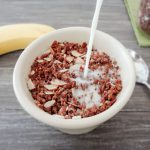
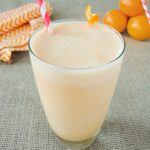

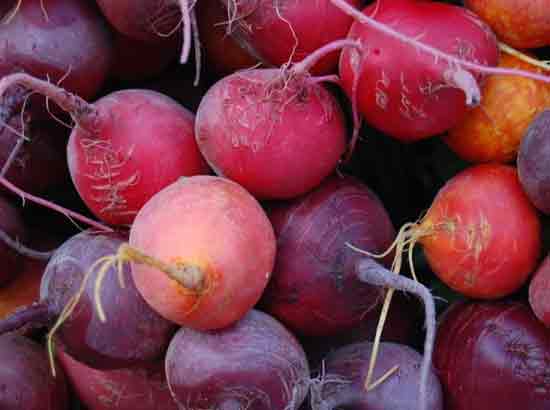

So is it not true that agave nectar is lower GI than other “sugars”? I thought that, like dates, it didn’t cause blood sugar spikes.
I think the short answer is no, that is likely not true. This article (http://www.webmd.com/diet/features/the-truth-about-agave?page=2) has some important takeaways, namely that the glycemic index is very unscientific at times and provides inconsistent results. It also mentions that the America Diabetic Association recommends limiting agave along with all other sweeteners. That makes complete sense when you consider that the fructose content is at least as high as corn syrup.
I pay very little attention to the GI, partly because it’s not very scientific and also because it would have me eating beef and whole milk because they are low GI.
Damn! Looks like I’ve fallen for the hype! Thank you for putting me straight, now at least if I am going to use sugar I’ll just use normal sugar and be done with it. I have managed to cut a lot out of my diet anyway but had been thinking it was worth spending more on agave if I was going to sweeten.
A very interesting article, even if it was a bearer of bad news!
Such a great post! I was fooled by agave for a while because there are so many healthy vegan bloggers who use it! I limit my sugar in general now (besides plant based stuff).
If you’re subbing date sugar in for another type of sweetener in a recipe, should you use the same amount?
Good question, Gatita! I would say it should probably be a 1:1 replacement. It isn’t quite as sweet, and you might use just a little more, but it should be fairly close.
Awesome thank you!
I’m intrigued about Date Sugar. I plan to make it tomorrow. Got a question, though. Wouldn’t baking the dates until dry kind of kill/decrease the nutrients? Or would you say despite the heat, it’s still healthier than say, brown sugar? Thanks!
Hi Leon, good question. I don’t have the data on what happens to dates when cooked, if any of the nutrient value is lost, but the natural fiber is still there and I’m sure it’s still much healthier than brown sugar.
Thanks for the fast response! I’m really excited about this. I’ve been trying to use date puree in recipes but that just comes out weird in stuff like cookies. Can’t wait to give this a try.
Ah I just noticed the baking temperature is actually low. (we use Celsius here, so I didn’t realise it was actually 270F) So that answers my question!
Wow, this is so interesting. Thanks for posting/writing it. I had not necessarily fallen for the hype in terms of loading foods with “healthy” sweeteners and thinking it was alright, but I certainly find myself having better piece of mind if I reach for agave nectar rather than plain old syrup or sugar. Now, I bake a lot and typically find myself subbing out sugar for Truvia, a stevia-based sweetener, thinking it is the better option. I don’t add extra or use it in excess thinking it’s okay because it’s deemed “healthy,” but am I making the right choice or should I use an alternate form of sugar/sweetener such as date or beet sugar instead?
Hi Hadley, you’re so welcome, I’m glad you found it useful! I actually like stevia quite a bit, I think it’s the best of the zero-calorie sweeteners. In terms of your question, I do like date sugar because it’s made from nothing but whole dates. Now things like beet and coconut sugar are virtually identical to the white stuff made from sugar cane, it’s just the sweet juice, extracted and refined, and they all have the same effect.
Thank you so much for clearing it all up for me! Keep up the great work on your site, I love it! I may not comment much, but I visit it regularly!!
This article is like a breath of fresh air. I’ve run into so many “healthy” living sites that spout unscientific nonsense and then “recommend” their organic-cruelty-free-costs-three-times-more-for-half-the-amount alternative (sorry got a little emotional there).
Food and Chemistry really can go hand-in-hand; and just taking the time to learn some of the basics (like you did here) can help us avoid marketing ploys and make more informed decisions.
I’m personally not a vegan (more of a vegetarian in training) but seeing your sensible approach and amazing recipes, I could totally go some of the Cauliflower Alfredo Sauce.
I’m glad you enjoyed it, Mitch. I’m with you there – simple common sense + science can go a long ways towards living healthier and avoiding marketing ploys 🙂
Make my own date sugar?!? Huh. Very cool. I’ll be making this tomorrow. It will be a great option for those times when date paste won’t cut it. Thank you Andrew! You’re one mad culinary genius. I like it.
You didn’t mention BANANAS as a whole foods sweetener! I love them for so many things, not to mention that they are one of the cheapest foods you can eat. Try running bananas through the Vitamix with a pinch of salt, some vanilla and cinnamon for a perfect topping.
Forgot to mention that I just stumbled upon your site and I am so thrilled to explore! Looks right up my alley 🙂
I need to set the record straight…
ALL plant sugars, with the exception of stevia, monkfruit, and alcohol sugars are viewed by your body in relatively an identical manner. The so-called ‘”health benefits” are minimal at best, and only New Zealand “Manuka” honey has “medicinal” properties when consumed internally, on a regular basis… honey DOES have medicinal properties when used externally, in some situations.
Bottom line: avoid sugar consumption, as best as possible… and use stevia, xylitol, monkfruit, or sodium saccharin, you will be “healthier” for it…
I tried making the date sugar from medjool dates I unpitted myself. I did everything You mentioned in the recipe & put them in my food processor & pulsed them but I guess they weren’t dry enough to become date sugar. :/
Ah sorry it didn’t work well, Marina. These days, I tend to buy pre-made date sugar because it’s more reliable than making it myself – and not much more expensive either.
In the paragraph talking about artificial sweeteners, you mention that these products are linked to cancer and metabolism issues. However, the first study linked discusses only aspartame and the connection between it and blood cancers. The second study linked is also focused on aspartame, as well as sucralose and saccharin. As such, these findings do not encompass sugar alcohols.
As for the weight gain issue, yes, if something has a lower amount of calories, it might lead to an altered feeling of satiety and higher consumption. The key is not to overcompensate for it and keep the intake at a normal level.
https://news.cornell.edu/stories/2017/05/researchers-id-biomarker-weight-gain-fat-mass-growth
This study, for instance, attests that college students who gained weight had a higher percentage of erythriol in their blood compared to others who either lost weight or maintained their weight. However, it is unclear from this study whether other factors have been accounted for and what the role of endogenous erythriol was. It is also mentioned that further research needs to be conducted to better understand whether or how it contributes to weight gain.
Hi Ioana, I appreciate you adding thoughtful research to the subject. You’re absolutely right and I don’t disagree with anything you said.
This article is quite old (5 years) and there has been a lot of research since then. In fact it seems that sugar alcohols like xylitol and erythritol might be mostly harmless, and one of the safest sugar substitutes (i.e. https://nutritionfacts.org/video/erythritol-may-be-a-sweet-antioxidant/)
When I have a minute I’ll make some tweaks to the text to make things more clear!
Thanks for addressing it. I’m aware it’s an older article, sorry for commenting on it after years ;D
Did you read your own article you reference?
“Some researchers claim the data is too weak to implicate aspartame as a cause of these cancers. Because regular soda also caused increased cancer risk, researches who conducted the study say that they can’t rule out chance as an explanation of their results, even though their research shows that aspartame could have a role on these cancers.”
Direct quote of the conclusion from the abstract of the study referenced in your reference (why not site the original source?)
“Although our findings preserve the possibility of a detrimental effect of a constituent of diet soda, such as aspartame, on select cancers, the inconsistent sex effects and occurrence of an apparent cancer risk in individuals who consume regular soda do not permit the ruling out of chance as an explanation.”
Come on, guys. Get it together. Stop spreading ignorance. You can’t make stuff up. You have to wait for more studies to make conclusions. There is way better science that sugar is bad no matter the form it is in.
“sugar is bad no matter the form it is in.” that was literally the entire point of the article so IDK what you’re complaining about.